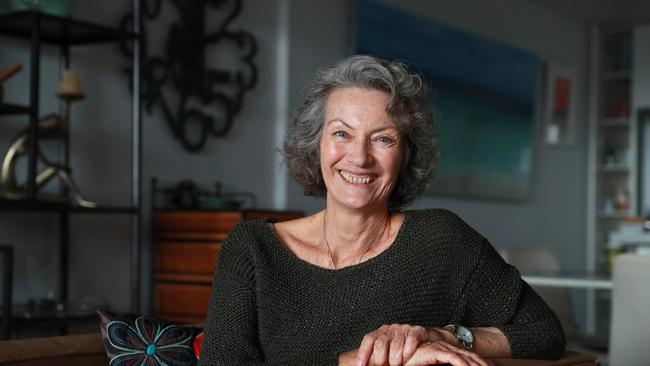‘I’ve got energy and skills that I think can make a contribution’
Margaret Dunn believes a graduate certificate of teaching will make her more competitive in the job market.

Margaret Dunn had been on a prolonged hunt for permanent work before the onset of the coronavirus crisis, but when the job losses started she knew she could be in an even tougher, more competitive environment than before.
A speech pathologist by training, with a PhD in linguistics, Dr Dunn also knew that at 65 she was in an age group that could struggle to find secure employment.
“I know there’s a bit of a feeling out there about my generation, the baby boomers, of ‘Why don’t they just move on and give the young people a go?’ ” she said. “I can totally understand that.
“But I need to work, and I want to work, and I’ve got energy and the skills that I think can make a contribution.”
READ MORE: Short courses: what you need to know | The secret of Joel’s success | Easy way to upskill | New career in cybersecurity | Moving on from the COVID crunch
She has had success in developing some tutoring clients and has solid experience in working with children with special needs but she is looking for a long-term role that will generate a sustainable income.
With a plan to find a role in education, she had begun exploring the prospect of training at various institutions, when one of them sent an email about the federal government’s new short courses. Dr Dunn now is enrolled in the Australian Catholic University’s graduate certificate in teaching, starting this month.
The certificate is one of five ACU has on offer, covering education, sports science, information technology and public health.
Although Dr Dunn has two degrees, including a doctorate, she knew that alone would not be enough to impress or convince prospective employers that she was job ready.
Her aim is to add a current and relevant entry to her resume. “So it doesn’t look like I have absolutely no academic knowledge of teaching,” she said.
On paper she is an unregistered speech pathologist with a PhD, and she feared that recruiters in her field of interest could be left wondering: “What actually can you do?”
Unfortunately, that had been her recent experience.
“I was finding I couldn’t get in the door because I didn’t have anything that makes me stand out in terms of the formal qualification side of things and, even though my experience is there, I need to get interviews before I can demonstrate that,” Dr Dunn said.
“The graduate certificate in teaching would enable me to be a little bit more competitive, with that practical side of working somewhere in the field of education.”
The course’s six-month duration means she can develop more teaching-specific skills quickly, and at a heavily subsidised $1250 the price is right.
Dr Dunn also sees the short course has the potential to help her find useful contacts.
“It’s a good networking tool as well, to get to more people who are already working in teacher education as well as people who intend to be back in schools,” she said.
“I know from pre-COVID days that it was like being on a treadmill going uphill and I think after COVID it’s not going to be much easier.
“But no one knows what the landscape will be like, obviously, so I thought I would give myself as good a chance as possible and just see what happens. Fingers crossed.”




To join the conversation, please log in. Don't have an account? Register
Join the conversation, you are commenting as Logout